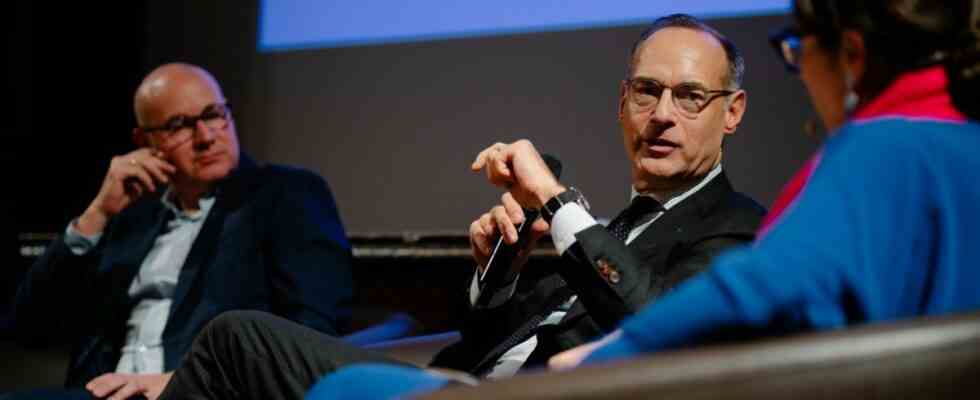The British urban researcher Charles Landry speaks excellent German. He studied in Munich for some time during its wild, eventful years half a century ago. On the opening evening of the “Initiative Kulturzukunft” he sums up his analysis of what is currently going on in this country in his native language: “Death by delay!”. In English: death by dawdling, the infirmity as a result of never-ending delays.
The people in the packed hall of the Academic Choral Society in downtown Munich know what he’s talking about. Most of them are patrons and sponsors, some of whom have been involved with Bavaria’s cultural institutions for decades, women and men who support museums, theaters, orchestras and opera houses with money and creative fundraising ideas. In addition, some administrators and many heads of the institutions turned up – including Gasteig boss Max Wagner, whose construction project was in the headlines again this week due to serious delays. Only one of the prominent politicians is there: Wolfgang Heubisch (FDP), formerly Minister of Art and Science and now a member of the state parliament.
Anna Kleeblatt and Markus Michalke, who will lead the evening, save themselves a clear inventory of the problems in terms of culture in the city and state. They refrain from giving specific examples, but there are many possible ones: for example the Neue Pinakothek, which closed for the fifth year, the lack of music teachers in the territorial state, a lack of concepts for culture in urban development. As a result, it remains vague for many as to what exactly is being fought for here.
Oliver Bäte, the CEO of Allianz, finds the clearest words. As a Munich-based global company, Allianz not only supports the Pinakothek der Moderne as a sponsor. Bäte emphasizes the international competition that is currently raging for the greatest talent and the most creative minds. “For them, art and culture is an important factor in settling in a place. You can’t be a top location for business without being a top location for culture,” he says.
More than full: the 250 seats in the hall were overbooked. According to the organizers, there were twice as many registrations.
(Photo: Lorenz Mehrlich)
And it can be assumed that the words of the spokesman for the most valuable insurance company in the world will be understood by politicians focused on tax revenue and voters. In times when the coffers are empty, it is all the more important to clarify “how much money do we have for what,” says Bäte. “Those who shout the loudest in society are always considered,” he describes his experience. “But those who are committed to culture and education are the most reserved and least able to defend themselves,” believes Bäte. The reflex of politics is clear: “That’s why we take their money away.”
It is not uncommon for politicians to see cultural workers as a collection of “starving artists” anyway. Their buildings would be “let go to waste” until every renovation would cost half a billion euros. Bäte therefore orders a “minimum investment volume” for the cultural buildings, which also includes new buildings.
Charles Landry has been researching urban development since the 1970s. In his lecture, he described how culture can help to better understand the world in its current violent change.
(Photo: Lorenz Mehrlich)
In addition to Bäte, who was probably not voted “Mister Efficiency” for nothing in 2007 (from Institutional Investor Magazine), others will also have their say in short presentations and on the panel that follows: the head of the Ifo Institute, Oliver Falck, and AI professor Sami Haddadin from the Technical University of Munich. Both also emphasize how important highly qualified people are for economically prosperous cities and regions or for their own specialist area.
“Technical disciplines benefit from art and culture,” says Haddadin. The creativity of engineers is inextricably linked to this, as has been known since the ingenious painter, scientist and inventor Leonardo da Vinci. In his keynote speech, Charles Landry finally emphasizes what “collective energies” are released through culture and the encounter of different cultures.
Light at the end of the tunnel? The start of the Kulturzukunft Bayern initiative.
(Photo: Lorenz Mehrlich)
The “cultural revolution” that some in the audience are hoping for from the initiative has not yet taken place that evening. But an interesting cornerstone has been laid. The matter will probably pick up speed with the next events. It could culminate in the summer, on July 16th at the TU, when the directly addressed politicians will sit on the podium.

